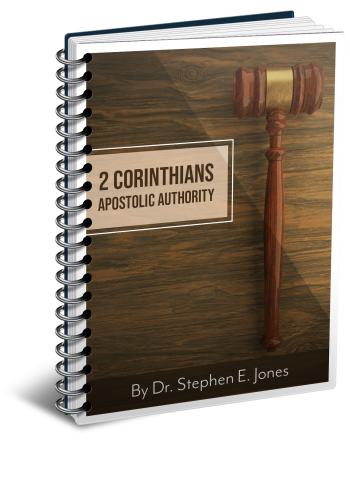Latest Posts
View the latest posts in an easy-to-read list format, with filtering options.

An in-depth commentary/study on the second book of Corinthians
Category - Bible Commentaries

Paul says in 2 Corinthians 11:5, 6,
5 For I consider myself not in the least inferior to the most eminent apostles. 6 But even if I am unskilled in speech, yet I am not so in knowledge; in fact, in every way we have made this evident to you in all things.
On the surface it appears that Paul was referring to those apostles who truly were “eminent,” such as Peter, James, and John. However, the overall context shows that he was most likely being sarcastic here and was referring to false apostles who were thought of as “eminent” but who opposed the true New Covenant gospel. Apparently, they criticized Paul’s lack of eloquence.
Rhetoric was taught in all the schools, as the art of persuasion was considered to be extremely important. All lawyers in that day were required to study rhetoric so that, if they were hired by politicians or criminals to represent them, they might convince the people of their clients’ goodness or innocence. Such rhetoric was probably what Paul had in mind earlier in 2 Cor. 11:3 when he said he did not want the church to “be led astray from the simplicity” of the gospel. The straightforward truth could only be complicated by rhetoric.
Considering Paul’s early education in the schools of philosophy prior to going to Jerusalem to study under Gamaliel, it seems unlikely that Paul was unschooled in rhetoric. It is more likely that Paul despised flowery speeches that were designed to manipulate the flesh and to motivate men’s souls by emotional appeal. Paul relied on spiritual understanding and revelation and did not want men to base their faith on carnal understanding and fleshly emotion.
For this he was criticized. The false apostles who were “eminent” in the eyes of those who valued the world’s carnality criticized Paul for his rudeness of speech. Paul’s response takes up two entire chapters of his letter (chapters 11 and 12).
The first issue has to do with money. Everyone needs to make a living, and even Paul himself needed to be supported, even though he often worked as a “tentmaker” to support himself (Acts 18:3). Various churches also supported Paul’s ministry with their donations, not only when he was present but also when he ministered to other churches (as we will see from verse 9).
Paul treated the Corinthian church differently for some reason. He did not accept donations from that church, even though he accepted donations sent to him from other churches. So we read in 2 Corinthians 11:7-9,
7 Or did I commit a sin in humbling myself that you might be exalted, because I preached the gospel of God to you without charge? 8 I robbed other churches, taking wages from them to serve you; 9 and when I was present with you and was in need, I was not a burden to anyone; for when the brethren came from Macedonia, they fully supplied my need, and in everything I kept myself from being a burden to you, and will continue to do so.
Many years ago I came across an anti-Paul teacher who used this passage to claim that Paul was a thief who had stolen money from other churches. He had allowed his anti-Paul bias to get the best of sound reason, because it is clear that Paul was not confessing any real sin—certainly not robbery. Paul was using exaggeration and some sarcasm in these chapters, because his opponents’ charges were so ridiculous.
It seems that Paul was being criticized for accepting donations (“wages”) from some of the other churches in order to support his ministry. Perhaps they called it “robbery.” If so, then Paul was not making a personal confession but was quoting his critics with some sarcasm when he said, “I ‘robbed’ other churches, taking wages from them to serve you.” It appears that Paul’s opponent in the Corinthian church found fault with Paul for accepting any donations at all.
It is likely that Paul’s main opponent had never been in the ministry himself. It is easy to criticize from a distance. There are things that I used to criticize when I was young and inexperienced, and only later did I get a more mature view. God has a way of putting us into the shoes of those we judge and condemn, so that we gain wisdom and understanding as we get older.
So we learn that “brethren came from Macedonia” with donations from other churches, which supplied Paul’s needs while he laid the foundations of the Corinthian church. The new church was thus financed by the older churches. Paul remained unrepentant, saying, “and will continue to do so,” for he saw nothing wrong in accepting financial help from those other churches who desired to obtain heavenly credits for the work that Paul was doing on their behalf.
Paul continues in 2 Corinthians 11:10-12,
10 As the truth of Christ is in me, this boasting of mine will not be stopped in the regions of Achaia. 11 Why? Because I do not love you? God knows I do! 12 But what I am doing, I will continue to do, that I may cut off opportunity from those who desire an opportunity to be regarded just as we are in the matter about which they are boasting.
Paul intended to continue his policy of not being supported financially by the Corinthian church, even though he accepted donations from them to give to the Jerusalem church. Paul thus had reason to boast that he worked “without charge” to establish the Corinthian church. While some generous members might have been hurt by Paul’s refusal, Paul insisted that his policy was not because he did not love them, but because he did love them.
Verse 12 is somewhat convoluted and confusing, even to the translators. However, we learn three main facts from this verse: (1) Paul intended to continue with his donation policy; (2) Paul’s motive was to undermine the claims of his critics; (3) Having shown that the charges against Paul were baseless, the critics would “be regarded just as we are.”
In other words, Paul’s critics had been judging him for taking donations (“wages”) from other churches, but the fact remains that they themselves were doing what they accused Paul of doing. Everyone has to be supported in some way unless they are independently wealthy.
Paul continues in 2 Corinthians 11:13-15,
13 For such men are false apostles, deceitful [doleos] workers, disguising themselves as apostles of Christ. 14 And no wonder, for even Satan disguises himself as an angel of light. 15 Therefore it is not surprising if his servants also disguise themselves as servants of righteousness; whose end shall be according to their deeds.
The word “deceitful” is from the Greek word doleos, whose root is dolos and closely related to delo, which means “to bait, catch by using bait.” The word picture is that these false apostles use the desires of men’s hearts as bait to ensnare followers for themselves. Hence, they disguise themselves as apostles of Christ, whereas in reality, they are apostles for a more sinister cause.
Earlier, Paul said that “the serpent deceived Eve by his craftiness.” Obviously, Paul was saying that these false apostles were servants of the serpent, or “Satan.” John writes in Rev. 12:9,
9 And the great dragon was thrown down, the serpent of old who is called the devil and Satan, who deceives the whole world….
The original deceiver, then, does not act alone, for he has his own apostles who appear to men as enlightened teachers. Their disguise is uncovered by their actions and (in this case) by their petty opposition to the true gospel that Paul was preaching. To undermine Paul’s gospel, they resorted to nitpicking his financial policy.